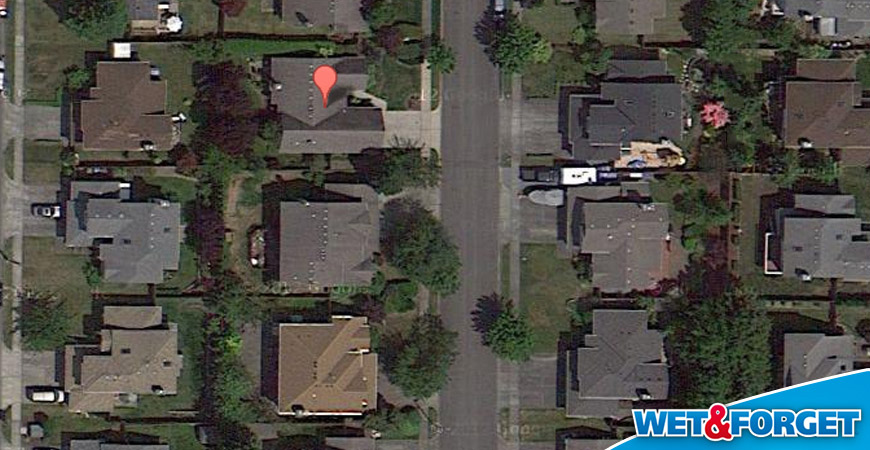
Key Maintenance Tips to Keep Your Asphalt or Concrete Driveway Mighty
Your driveway isn’t just a pathway for your car –it’s also a major part of your home’s appearance. The condition of your driveway will either add value to your home, or drain your home’s value.
These essential driveway maintenance tips will help you keep your asphalt or concrete driveway in tip-top shape. Make sure to protect your investment in your home, and avoid ugly headaches like potholes, cracks and pooling water.
Read on to see how to keep your concrete or asphalt driveway mighty. Be sure to check back next month for tips on gravel driveways and pavers.
Asphalt
A good asphalt driveway will last your family decades with the proper care. Standing water, the winter freeze-thaw cycle and weed growth are all threats to your driveway.
They can chip away at its strength little by little, eventually causing it to break apart. Here are the best weapons in your arsenal to prevent these types of damage:
- Driveway Sealing
A good seal coat can protect your driveway from the elements and stop some cracks before they start. Home improvement expert David Beaulieu recommends seal coating your asphalt driveway yearly to protect it from sun, water and ice.
Springtime is the ideal for sealcoating driveways in most of the country: In cooler climates, springtime is your first opportunity to repair damage from winter’s freezes and thaws, and in warmer areas, a springtime seal coat will protect your driveway from summer UV rays and rain.
Before you seal coat your driveway, be sure to inspect it for any standing water, cracks, or holes, and make any necessary repairs (see below). Also make sure your driveway is clean and free of growths such as algae, moss, lichen or mold and mildew, which will keep the seal coat from adhering properly.
Let Wet & Forget take care of this step for you, and make your job a little easier!
- Dealing with Standing Water
Any parts of your driveway that are lower than the surrounding areas can form “bowls” or “bird baths” where water can collect. Standing water not only looks bad–it can also cause your driveway to crack.
Walk your driveway just after it has rained and look for any of these “bird baths.” If the water is an inch deep or less, you can fix the problem pretty easily yourself. If it’s more of a pond than a bird bath, call in an expert.
- Repairing Cracks
Even if you seal coat regularly and get rid of standing water, harsh weather conditions or previous neglect may leave your driveway with some cracks. If left alone, weed growth, rain and freezing water will make cracks keep getting bigger until you repair them, so nipping the problem in the bud is they key to keeping your driveway strong.
DoItYourself.com recommends fixing small cracks (1/8 to 1/2 inch wide) with asphalt emulsion crack filler, and filling in bigger cracks with prepackaged cold pack blacktop.
- Filling Holes
Just like the streets in your neighborhood, your asphalt driveway can develop potholes. Potholes often rear their ugly heads in the springtime, after winter’s freezes and spring’s rains have done their damage.
Potholes can lead to twisted ankles and tire damage, and will only get bigger until you take care of them. DoItYourself.com offers these instructions for defeating potholes using asphalt cold patch, a 4″ by 4″ and a few common household tools.
Concrete
Concrete driveways enhance your home’s beauty and can last for many years. They are also one of the most expensive types of driveway, so good maintenance is necessary to protect it.
Regular sealcoating and crack repair will help you keep your driveway in top condition.
- Driveway Sealing
Experts recommend sealing your concrete driveway 6 months after its installation, and every 2 to 3 years after that. Apply concrete sealer in cool weather, at a time that allows at least 24 hours for the sealer to dry.
Apply the sealer with a brush, a roller or a sprayer. While a sprayer is fast and easy, it is not a good option if you want to mix some anti-slip solution in with the sealer, because the solution will clog the sprayer.
DoItYourself.com offers these step-by-step instructions for sealing your concrete driveway.
- Repairing Cracks
Cracks in your concrete driveway need your immediate attention, or they will continue to grow. On a cool dry day, clean the area, remove any loose chunks of concrete, and apply concrete paint for hairline cracks, or a crack sealer such as epoxy concrete patch, grout, or vinyl concrete patch for larger cracks.
Check out these step-by-step instructions for repairing cracks in concrete.
- Keeping it Clean
Make Wet & Forget Outdoor a part of your regular driveway maintenance to keep your concrete driveway free of moss, mold and mildew, algae or lichen.
Wet & Forget Outdoor not only removes all of these ugly growths–it keeps them from coming back for a year or more in most cases. You can’t beat that!
Wet & Forget: the Simple Way to Keep Your Driveway Gunk-Free
Whether your driveway is made of asphalt or concrete, it can fall victim to moss, algae, lichen or mold and mildew growth. All of these growths harm your driveway’s appearance.
Meanwhile, moss or lichen can harm your driveway’s surface by damaging the seal coat, or causing cracks to expand. Algae, mold and mildew can cause your driveway to become very slippery, making it hazardous for your family to walk on.
Zap all of these growths without breaking a sweat with Wet & Forget Outdoor! Just spray and walk away to rid your driveway of these disgusting stains.
Then, leave it looking gorgeous and ready for seal coating or crack repair. No scrubbing needed!
Simply:
- Mix 1 part Wet & Forget Outdoor with 5 parts water in a pump-up garden sprayer.
- Spray the diluted Wet & Forget on a dry driveway, at a time that allows 4 to 5 hours for the Wet & Forget to dry before the threat of rain.
- Walk away, and let Wet & Forget Outdoor do the work for you!
For moss, be sure to saturate thoroughly to allow Wet & Forget to reach the moss’s root-like structures. For lichen, follow these special instructions.
Learn more about Wet & Forget products!

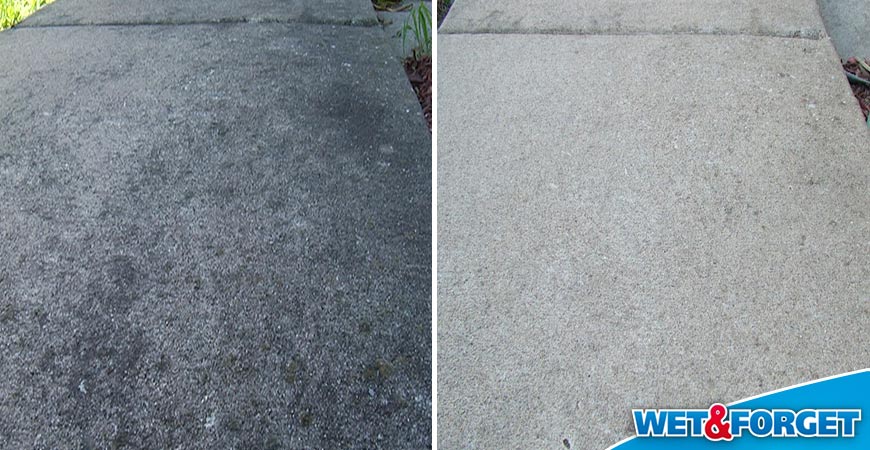
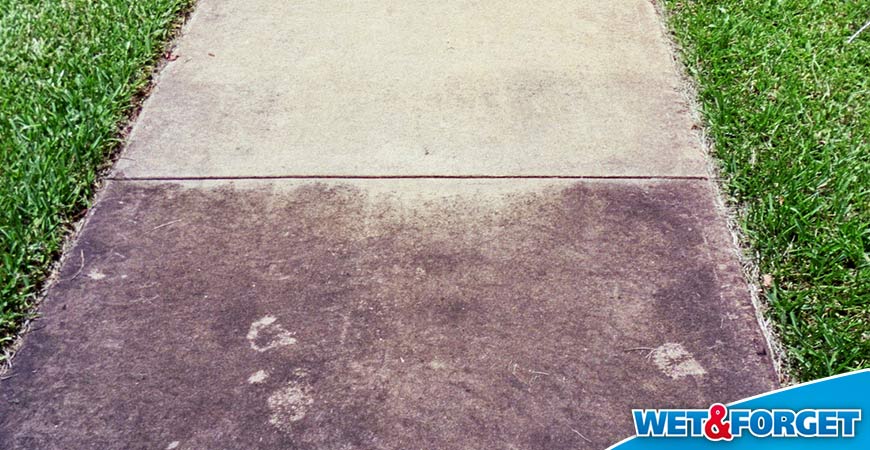

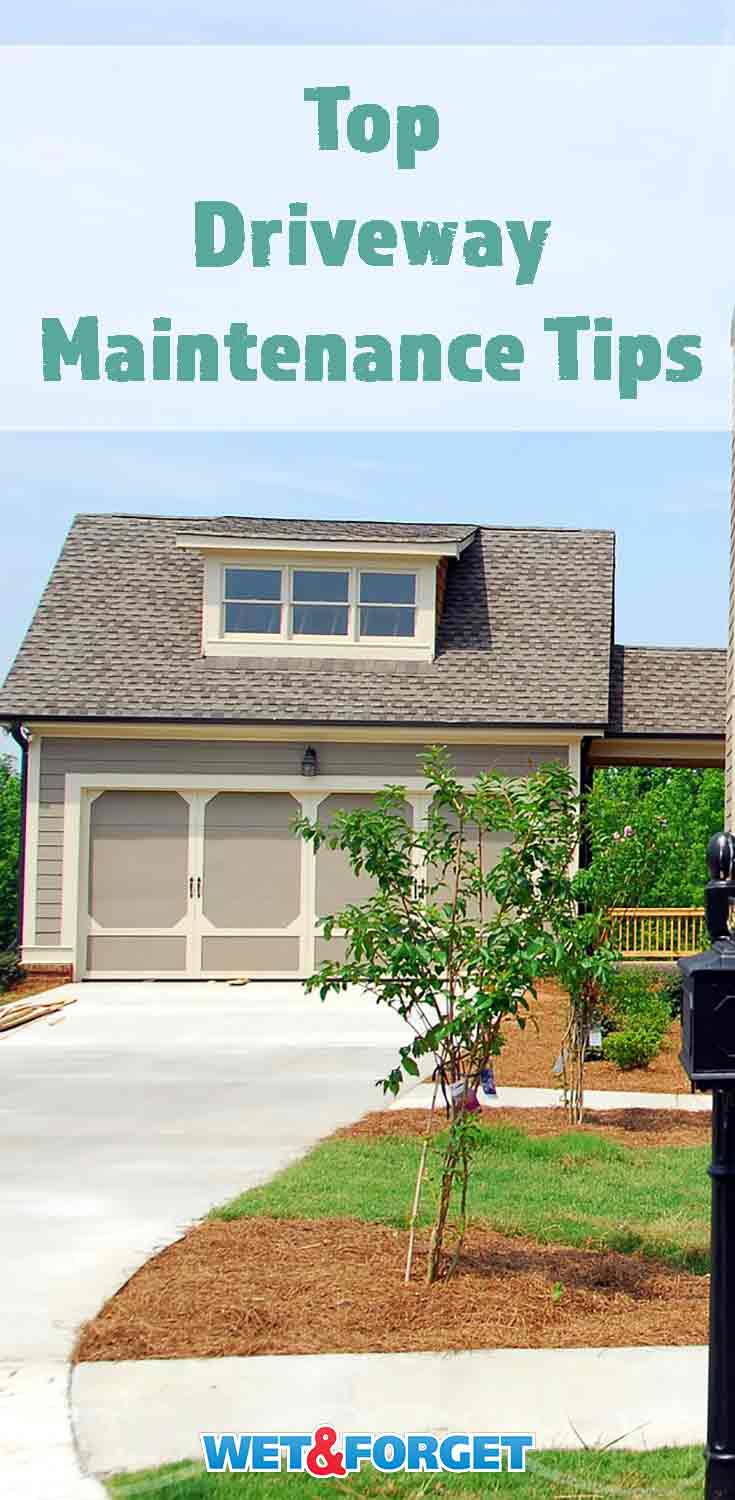
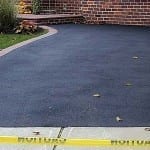
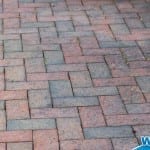
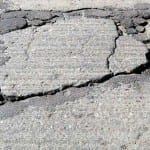
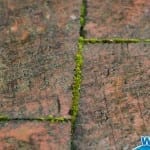

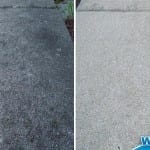
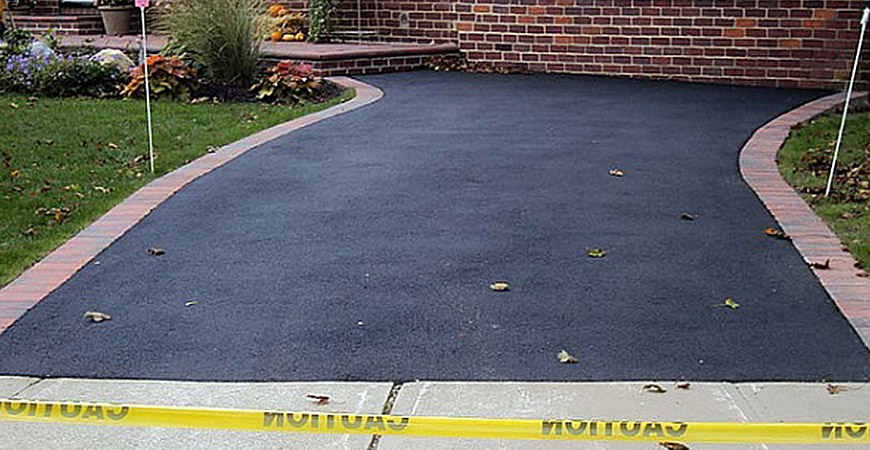
Jen Pack
My family and I just got a new driveway so I really appreciate these tips on how to maintain it. I like how you mention that sealing it will protect the driveway from natural elements and stop cracks before they even start. It seems like it is the best way to avoid problems so that you won’t have to worry about repairs later down the road. Thanks for sharing this!
Monica Chavez
Here in snohomish county wa, our driveway has been through a lot and we are in current need of concrete restoration. I wish we would have taken care of it a little better are repaired the cracks when we could as now there are weeds growing everywhere. This is some great advice for the future that I think more people should know!
Derek Dewitt
I like your point about how a seal coat can prevent your driveway from getting damaged by the sun or water. My wife and I noticed our driveway has been getting cracked a lot from the weather, so we might need to look into doing this. I don’t want to risk larger holes forming once it gets cold again.